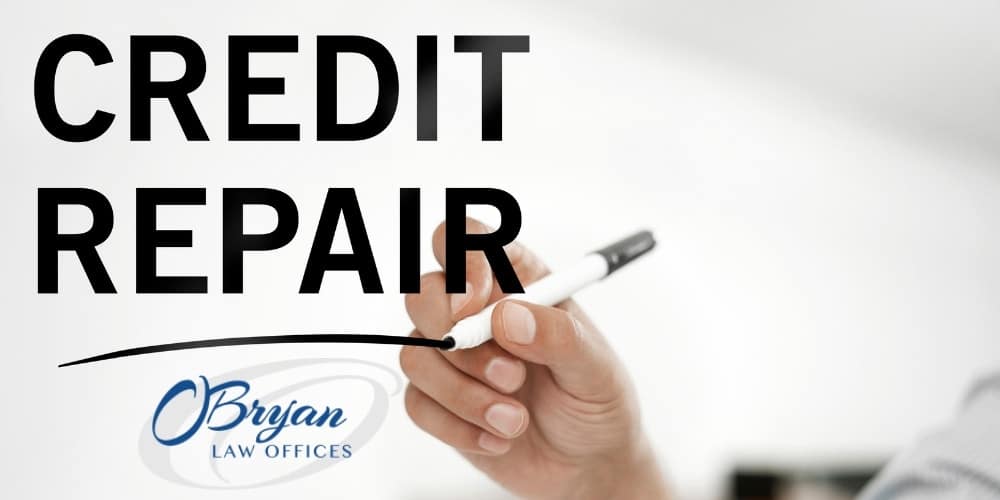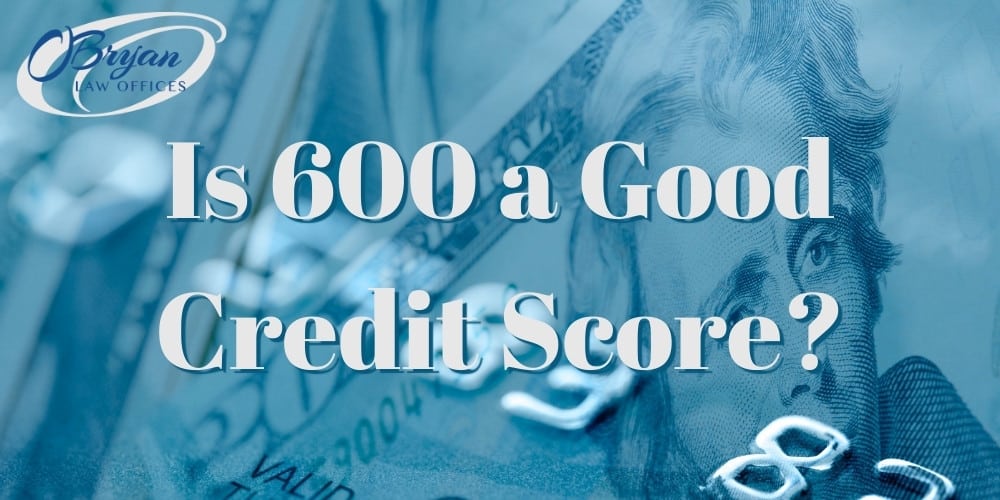A 600 credit score falls within the fair range, between 580 and 669. While it’s below the national average, it doesn’t mean you’re out of options. Lenders may view this score as a higher risk, which can make qualifying for loans or credit cards more difficult — but it’s absolutely possible to improve your score with the right steps.
If debt or poor credit is holding you back, speak with an experienced bankruptcy lawyer in Louisville today. The team at O’Bryan Law Offices can help you explore your debt relief options and rebuild your financial future. Call us now at (502) 339-0222 to get started.
What Is a Credit Score?
A credit score, in simple terms, is a way for a lender to determine whether or not you’re a safe person to lend money to. The higher the score, the more likely you are to pay back the debt. While FICO was the first widely used scoring model, the more recent VantageScore has gained popularity.
In short, both of these credit scoring models use the same points of data but place different significance on each factor. Since most lenders still use the FICO model, the rest of this article will reference FICO-based information.
| Credit Score Range | Rating | Meaning |
|---|---|---|
| 300 – 579 | Poor | Very high risk; credit approval is unlikely. |
| 580 – 669 | Fair | Below the average credit score; may qualify for some credit with higher interest rates. |
| 670 – 739 | Good | Near or slightly above average; considered a lower risk to lenders. |
| 740 – 799 | Very Good | Strong credit history; eligible for better rates and loan options. |
| 800 – 850 | Excellent | Exceptional credit; access to the best loan terms and rates. |
-
300 – 579
Poor
Very high risk; credit approval is unlikely.
-
580 – 669
Fair
Below the average credit score; may qualify for some credit with higher interest rates.
-
670 – 739
Good
Near or slightly above average; considered a lower risk to lenders.
-
740 – 799
Very Good
Strong credit history; eligible for better rates and loan options.
-
800 – 850
Excellent
Exceptional credit; access to the best loan terms and rates.
How Are Credit Scores Calculated?

Since most lenders use the FICO model, we’ll talk about how FICO calculates your credit score. Five categories have an impact on your credit score, but these categories are not weighted equally. Payment history, for example, makes up the bulk of your score at 35%. Read on to find out which types impact your score most.
Payment History
This category is simple enough. Pay your bills on time, and you’ll be rewarded with a higher score. Unfortunately, it’s not always this simple. For many Americans, rent payments don’t appear on credit reports unless the landlord reports to one of the three credit bureaus. Late payments and missed payments have a significant impact on your credit score. On-time payments are the most important part of maintaining your credit score.
Credit Utilization
Coming in at a close second, credit utilization makes up 30% of your credit score. This is a fancy term for how much revolving credit you use. Revolving credit is credit you have access to–like credit cards. Experts say to use no more than 30% of your credit available. Ideally, you want to keep your utilization ratio under 10%. You can figure out your credit utilization by dividing your credit limit by your balance. Take, for example, someone who has three different credit cards with credit limits of $2,000, $5,0000, and $3,000. They should use no more than $3,000 (30% of $10,000) to ensure their credit score stays high.
Credit History
Credit history plays a role in your credit score as well (15%, to be exact). This is the age of your credit file, which changes for everyone. Older adults who have been building credit for decades will likely have a higher score than someone who just opened their first credit card.
New Credit
New credit applications often do a hard inquiry on your credit, which can have a negative impact on your score. Also, new credit checks account for 10% of your FICO score. Multiple new credit applications can be a major red flag to most lenders. Read our related blog for answers to the question, “How long do hard inquiries stay on your credit report?”
Types of Credit
The different types of credit you accumulate over the course of your life account for 10% of your credit score. This makes a ‘diverse portfolio’ and is often called a credit mix. Having a mixture of mortgages, credit cards, and auto loans can have a positive impact on your credit score. This can show lenders that you are responsible.
What Is a Good Credit Score?
A ‘good’ credit score falls in the range of 670-739. People with higher credit scores often have more options available to them, including a lower interest rate on a loan or credit card and better pre-qualified offers.
How Do I Get a Credit Report?
Many free online services offer a free look at your credit report. Each of the three credit bureaus offers one free in-depth credit report per year. At O’Bryan Law Offices, our debt counseling attorneys can help you request and understand your credit report. We can go over the report with you and help you understand how different credit decisions have impacted your score.
How Can I Improve My 600 Credit Score?

Building credit can be a difficult process. One bad decision or late payment can tank all the hard work you’ve done building it up.
A secured credit card may be an option for building your credit consistently. Most credit cards are unsecured, meaning you use the credit card and then pay the balance. With a secured card, you pay a security deposit to the credit card issuer (usually equal to the credit limit) and then you can access the credit.
The most important thing to remember about credit is that you can’t suddenly improve it overnight. Creating good credit habits is the best way to improve your credit and keep it high. Good credit habits include:
- Making payments on time
- Keeping credit utilization low
- Creating (and sticking to) a budget
- Avoid multiple new credit applications
Is Filing Bankruptcy Right for Me?
If you find yourself drowning in a mountain of debt and see no way out, bankruptcy may be right for you. Bankruptcy to build up your credit may sound counterintuitive, but bankruptcy has many benefits. Don’t fall for one of the many bankruptcy myths circulating online. Bankruptcy can be a way for you to eliminate credit card debt and take control of your finances.
Kentucky Bankruptcy Attorneys at O’Bryan Can Help
The Kentucky bankruptcy lawyers at O’Bryan Law Offices help clients with debt relief every day. If you’re struggling with a low score and a mountain of debt, let our experienced attorneys help. Our board-certified attorneys can help you with everything from credit counseling to restoring your credit after bankruptcy. Call us today at (502) 400-4020 or schedule an appointment online. At O’Bryan Law Offices, our attorneys are different. Let us help you explore your options for debt relief.
Call us today at (502) 400-4020 or schedule an appointment online. At O’Bryan Law Offices, our attorneys are different. Let us help you explore your options for debt relief
Frequently Asked Questions
Yes, but your options may be limited. Lenders often consider a 600 score as “fair,” meaning you might still qualify for certain loans, though typically with higher interest rates or stricter terms. Since a 600 credit score is below the average credit score, improving your credit before applying can help you qualify for better terms.
It depends on your financial habits. With consistent on-time payments, maintaining a low credit utilization ratio, and avoiding new hard inquiries, you can improve your credit score within 3–6 months. Small, steady progress is the key to long-term success.
No. While bankruptcy affects your credit initially, many people begin rebuilding their score within a year. In fact, bankruptcy can give you a clean financial slate and stop damaging collection activity that limits the amount of credit available to you.
Yes. A bankruptcy lawyer in Louisville can guide you through debt relief options, ensure your rights are protected, and help you take steps to improve your credit score after filing.




